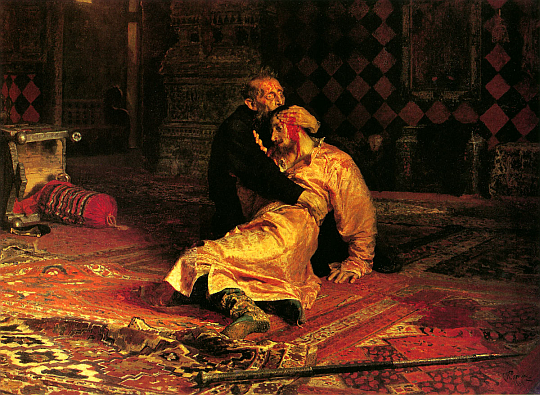
Even if we are spared destruction by war, our lives will have to change if we want to save life from self-destruction. We cannot avoid revising the fundamental definitions of human life and human society. Is it true that man is above everything? Is there no Superior Spirit above him? Is it right that man’s life and society’s activities have to be determined by material expansion in the first place? Is it permissible to promote such expansion to the detriment of our spiritual integrity?
If the world has not come to its end, it has approached a major turn in history, equal in importance to the turn from the Middle Ages to the Renaissance. It will exact from us a spiritual upsurge, we shall have to rise to a new height of vision, to a new level of life where our physical nature will not be cursed as in the Middle Ages, but, even more importantly, our spiritual being will not be trampled upon as in the Modern era.
This ascension will be similar to climbing onto the next anthropologic stage. No one on earth has any other way left but — upward.
—Aleksandr Isayevich Solzhenitsyn, Commencement Address at Harvard University, June 7, 1978.
I remember Solzhenitsyn among other things by this amazing and carefully provocative speech he delivered at a Harvard commencement. The speech fell during a period of growing anti-militarism on university campuses that followed the Vietnam War. Solzhenitsyn was one of two historically significant voices of criticism that the Soviet Union produced in this era–the other, still more powerful voice was Andrei Sakharov’s. Each in a sense followed in the path of one of the two great intellectual movements that have dominated Russian thought since the time of Peter the Great: Solzhenitsyn was the bearer of the Slavophile tradition, and Sakharov of the Westernizers. For Americans who followed Solzhenitsyn’s critique of the excesses of the Soviet Union, the Harvard speech may have come as something of a shock. Like a discourteous guest, he took aim at some of the things about America that troubled him and that mattered. He disdained the nation’s pervasive materialism, the secularism of its society, and the lack of moral courage to stand for its values. His words seem, from the distance of thirty years, well crafted and his criticisms ring true on many points. Solzhenitsyn was a man with a powerful gift of insight and an uncanny ability to express truth about great injustices in simple human terms. But when it came to the expression of a coherent political vision, he faltered and sometimes seemed maladroit–as has been the case with many great artists in human history. Still, his words spoken at Harvard are patient words of criticism from a well-meaning visitor, and this is a time to remember them.
Shortly after posting this, I noticed that Harvey Mansfield had written an essay on the same Harvard speech in the Weekly Standard. This essay is well worth reading, as is the critique that Larisa Alexandrovna wrote noting where Mansfield goes off the tracks. Mansfield’s attempts to place Solzhenitsyn in the tradition of classical antiquity don’t work in my mind. He is very deeply rooted in another tradition, that which would make Moscow the Third Rome. Solzhenitsyn was, in a sense, the last Russian monk. We was an important, though imperfect, voice.


